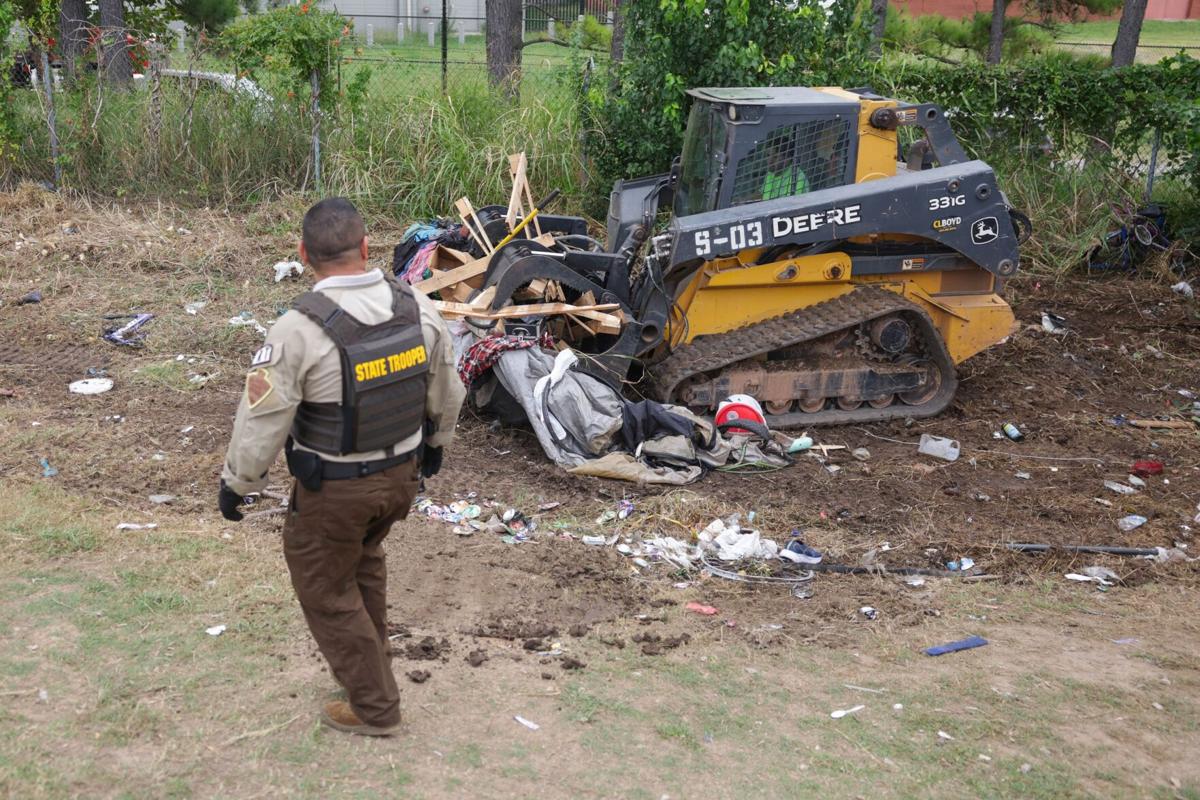World
Tensions Rise in Tulsa as Governor Stitt’s Homelessness Strategy Faces Criticism

The response to homelessness in Tulsa has become a contentious issue following Oklahoma Governor Kevin Stitt’s decision to utilize the Oklahoma Highway Patrol (OHP) to clear homeless encampments. Critics argue that this approach, branded as Operation SAFE, lacks collaboration with established outreach teams and will ultimately fail to address the root causes of homelessness.
On Thursday, OHP officials indicated that the initiative primarily focuses on public safety near roadways, rather than providing comprehensive solutions to homelessness. Of more than 500 individuals encountered during the operation, only one accepted transportation to social service support. No arrests were made, and no outstanding warrants were identified among those approached.
This situation has left many questioning the urgency of the operation, particularly given that Tulsa has seen a rise in its homeless population since 2014. Concerns have been raised about the motivations behind this sudden push for action, particularly from an unnamed coalition of business leaders who have become vocal in recent months. Critics contend that this group is operating with minimal transparency, reminiscent of a “Great and Powerful Oz” pulling strings behind the scenes, rather than directly engaging with the community.
The governor has faced accusations from local Democrats, who claim he is misrepresenting the situation. A common assertion made by Stitt is that 45% of Tulsa’s homeless population originates from out of state. However, data from the federally mandated Point-In-Time count reveals that only 16% of the homeless population in Tulsa came from other states, with 75% becoming homeless within the city itself.
As tensions mount, many Tulsans are eager for solutions. The city has been working on strategies to address homelessness, spearheaded by Mayor G.T. Bynum. His administration has prioritized affordable housing and established a comprehensive homelessness strategy since December 2019. Following the onset of the COVID-19 pandemic, the urgency to tackle homelessness intensified, leading to increased funding for mental health services and targeted outreach.
Despite the city’s efforts, the average wait time for individuals qualifying as chronically homeless to secure supportive housing is around 220 days. Nonprofits estimate that it costs at least $26,000 annually to provide the necessary support for each household until stable income is achieved, which poses a significant challenge given the rising rental costs in Tulsa.
The approach to decommissioning homeless camps has proven effective when executed as a multi-step process that includes outreach teams working directly with individuals to find appropriate housing. For example, a similar method in Houston has reportedly reduced homelessness by 64% since 2011. However, the lack of adequate investment in public funds for these initiatives in Tulsa has hindered progress.
The city has seen a shift in its approach to homelessness, with the establishment of Community Response Teams by the Tulsa Police Department and Alternative Response Teams by the Tulsa Fire Department. These teams focus on addressing mental health crises, including those involving homeless individuals.
As the community grapples with the implications of Operation SAFE, many Tulsans are calling for a more open dialogue about homelessness. They seek solutions that prioritize permanent shelter and mental health support, rather than merely relocating individuals. The path forward requires cooperation between government entities, community organizations, and the business sector, with a focus on factual discussions rather than misinformation.
In conclusion, the situation in Tulsa represents not just a challenge but also an opportunity for residents to unite in their desire for effective solutions to homelessness. While the current strategy led by Governor Stitt has drawn criticism, it has also sparked a renewed focus on finding sustainable ways to support vulnerable populations in the city.
-

 Lifestyle3 months ago
Lifestyle3 months agoLibraries Challenge Rising E-Book Costs Amid Growing Demand
-

 Sports3 months ago
Sports3 months agoTyreek Hill Responds to Tua Tagovailoa’s Comments on Team Dynamics
-

 Sports3 months ago
Sports3 months agoLiverpool Secures Agreement to Sign Young Striker Will Wright
-

 Lifestyle3 months ago
Lifestyle3 months agoSave Your Split Tomatoes: Expert Tips for Gardeners
-

 Lifestyle3 months ago
Lifestyle3 months agoPrincess Beatrice’s Daughter Athena Joins Siblings at London Parade
-

 World3 months ago
World3 months agoWinter Storms Lash New South Wales with Snow, Flood Risks
-

 Science3 months ago
Science3 months agoTrump Administration Moves to Repeal Key Climate Regulation
-

 Science2 months ago
Science2 months agoSan Francisco Hosts Unique Contest to Identify “Performative Males”
-

 Business3 months ago
Business3 months agoSoFi Technologies Shares Slip 2% Following Insider Stock Sale
-

 Science3 months ago
Science3 months agoNew Tool Reveals Link Between Horse Coat Condition and Parasites
-

 Sports3 months ago
Sports3 months agoElon Musk Sculpture Travels From Utah to Yosemite National Park
-

 Science3 months ago
Science3 months agoNew Study Confirms Humans Transported Stonehenge Bluestones









